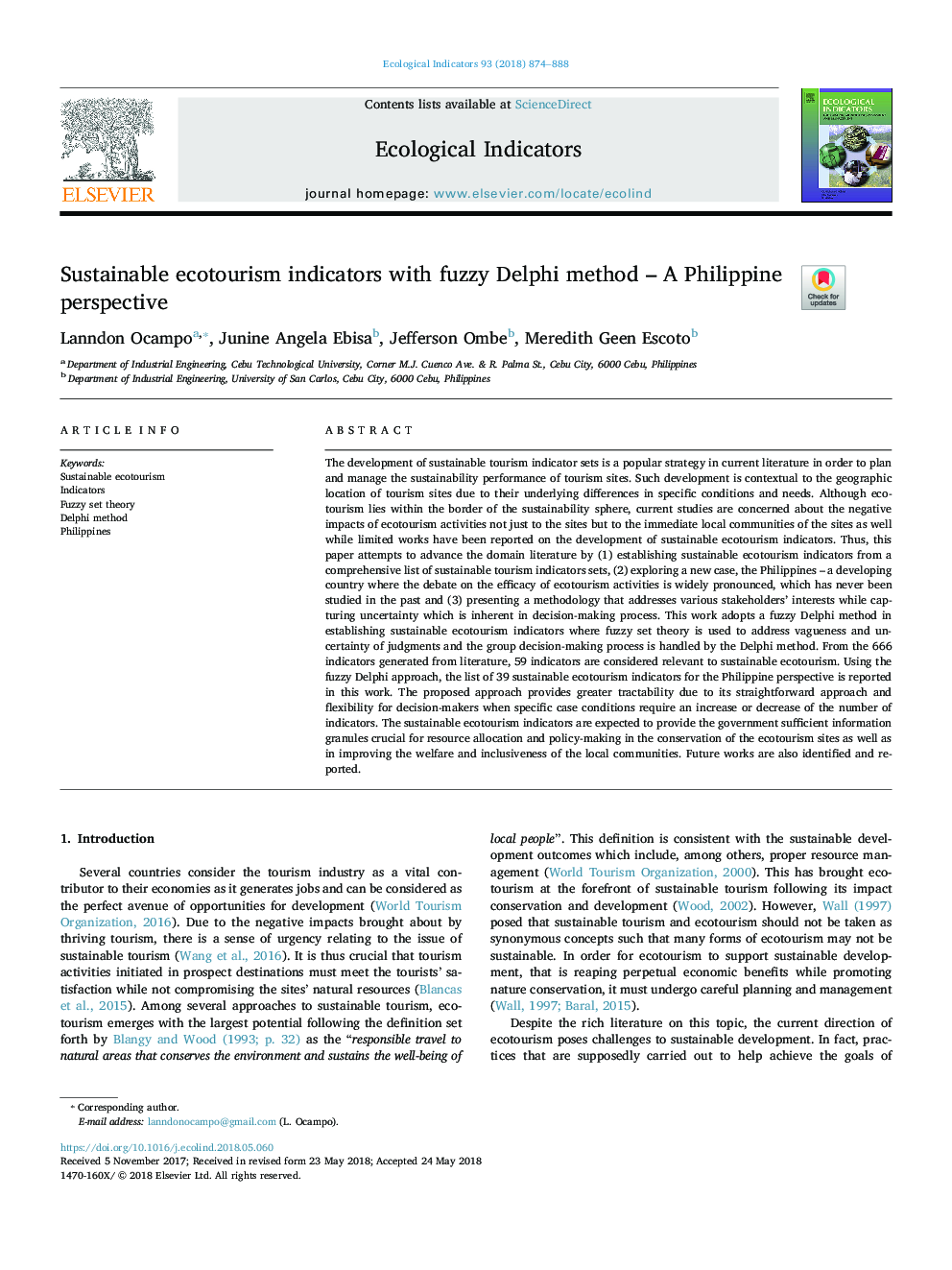| Article ID | Journal | Published Year | Pages | File Type |
|---|---|---|---|---|
| 8845238 | Ecological Indicators | 2018 | 15 Pages |
Abstract
The development of sustainable tourism indicator sets is a popular strategy in current literature in order to plan and manage the sustainability performance of tourism sites. Such development is contextual to the geographic location of tourism sites due to their underlying differences in specific conditions and needs. Although ecotourism lies within the border of the sustainability sphere, current studies are concerned about the negative impacts of ecotourism activities not just to the sites but to the immediate local communities of the sites as well while limited works have been reported on the development of sustainable ecotourism indicators. Thus, this paper attempts to advance the domain literature by (1) establishing sustainable ecotourism indicators from a comprehensive list of sustainable tourism indicators sets, (2) exploring a new case, the Philippines - a developing country where the debate on the efficacy of ecotourism activities is widely pronounced, which has never been studied in the past and (3) presenting a methodology that addresses various stakeholders' interests while capturing uncertainty which is inherent in decision-making process. This work adopts a fuzzy Delphi method in establishing sustainable ecotourism indicators where fuzzy set theory is used to address vagueness and uncertainty of judgments and the group decision-making process is handled by the Delphi method. From the 666 indicators generated from literature, 59 indicators are considered relevant to sustainable ecotourism. Using the fuzzy Delphi approach, the list of 39 sustainable ecotourism indicators for the Philippine perspective is reported in this work. The proposed approach provides greater tractability due to its straightforward approach and flexibility for decision-makers when specific case conditions require an increase or decrease of the number of indicators. The sustainable ecotourism indicators are expected to provide the government sufficient information granules crucial for resource allocation and policy-making in the conservation of the ecotourism sites as well as in improving the welfare and inclusiveness of the local communities. Future works are also identified and reported.
Related Topics
Life Sciences
Agricultural and Biological Sciences
Ecology, Evolution, Behavior and Systematics
Authors
Lanndon Ocampo, Junine Angela Ebisa, Jefferson Ombe, Meredith Geen Escoto,
